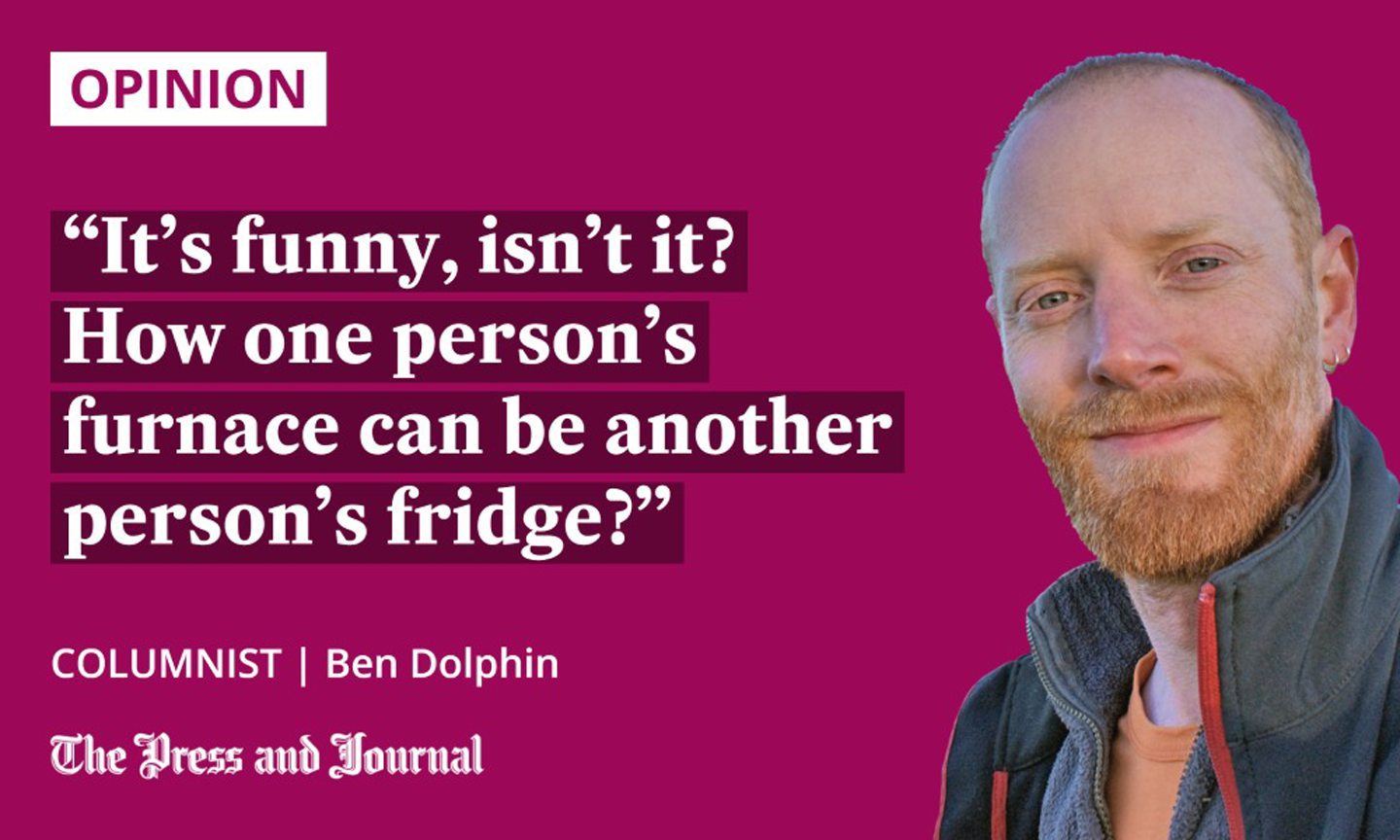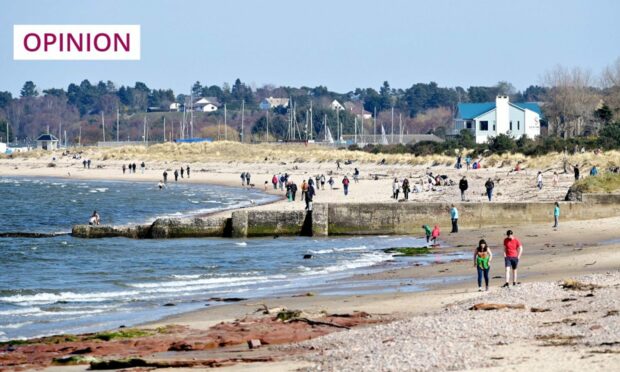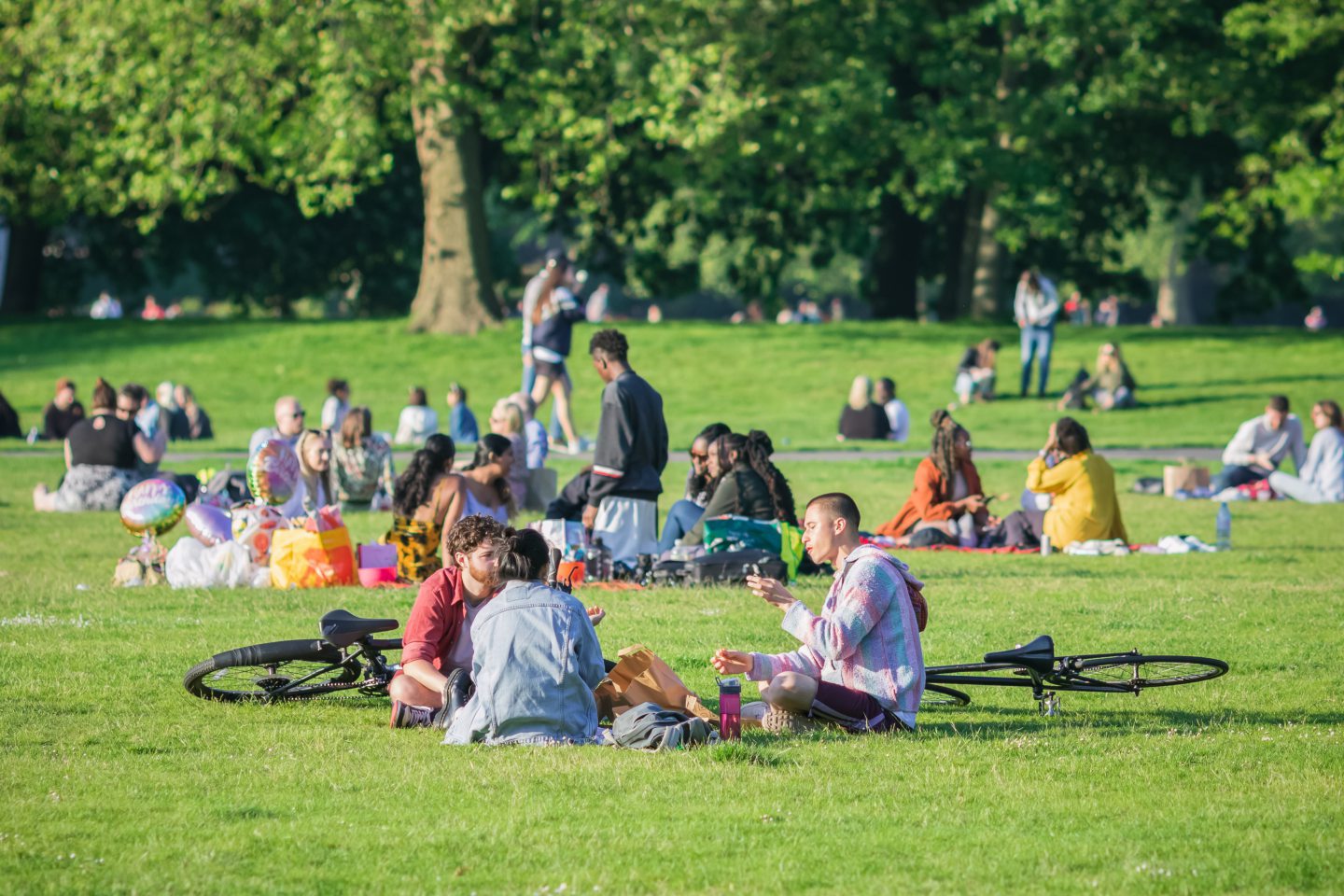Perhaps, as with all living things, we humans have our own ecological ‘niche’ into which we each fit, writes Ben Dolphin.
The UK is getting warmer. Of that, there’s no doubt.
Days, nights, summers, winters – all experiencing a warming trend, despite blasts of cold nostalgia once in a blue moon. As a result, our flora and fauna is generally moving up the country, pushed northwards by increasingly uncomfortable environmental conditions that they can no longer tolerate or compete within.
Mainland European species are appearing in England. English species are appearing in Scotland. And creatures already at the limit of their northern range or altitude in Scotland… Let’s hope they’re formulating their escape plans.
This northward drift of nature is well documented, but does it apply to people, too? Well, if a lovely couple from East Anglia I met at work last month are anything to go by, the answer is an emphatic yes.
They were sat on a bridge, warming themselves in the weak sunshine, having camped overnight up the glen. They’d recently relocated to the Cairngorms temporarily, while they tried to find somewhere else up here to stay longer-term.

Having holidayed in Scotland for years, and clearly being enamoured of it, there was undoubtedly a pull factor behind their move north. But they spoke of a push factor, too – the changing weather in East Anglia. Specifically, during summer 2022.
It’s common to hear people in Scotland talk wistfully about better climates: drier places, sunnier places. Places where you can sit outside in an evening, maybe in a beer garden, without that northern chill setting-in.
But, be careful what you wish for. Because, with temperatures in eastern England hitting 40C for the first time, this couple said it was too hot to do anything other than hide indoors with the curtains drawn. At night, it was too hot to sleep.
There was no rain for months. Residential streets caught fire. They said that if summers like that were their future, it was time to leave.
I wonder how many other people are pondering whether 2022 was a roasting one-off, or a vision of things to come? How many are eyeing up cooler climes?
One person’s furnace can be another person’s fridge
During the 1980s and 1990s, when temperatures above 30C were rare, the West Midlands were already too hot and stifling for me. I moved to Edinburgh for the hills and for colder winters, but after a couple of years, I realised just how much more comfortable its summer climate was too. Then, 25C was considered a hot day! That was 20 years ago, and the climate down south has only got worse since.
Here in the Cairngorms, our East Anglians can expect summer highs at least 10 degrees lower than the new 40C world of eastern England. Temperature records tumbled in Scotland last year, too, of course, and although Braemar’s long-standing high of 30C (set in 1975 and again in 2018) held firm, last summer was still way too hot for me.
It’s funny, isn’t it? How one person’s furnace can be another person’s fridge?
I was, nonetheless, happy for this lovely, chatty couple, as they were clearly in their element that frosty February morning, loving the cold. “Winter is our new summer,” they said confidently.
But, while it was cold, it certainly wasn’t Cairngorms cold. Eastern Scotland was 2C warmer than the long-term average in February, with half the average precipitation. And it showed – the mild nights, the dearth of snow. It didn’t feel like winter to me, and it made me feel uneasy.
Perhaps, as with all living things, we too have our own ecological “niche” into which we each fit? The optimum conditions for us to feel comfortable, to survive and to thrive.
Sizzling summers might drive me off the mainland
Will I have to do the same as the southerners if Cairngorm summers get unbearably hot? Will I have to move north too?
Alas, much like our native northern fauna, I fear I would run out of Scottish north long before finding my preferred niche. And, living as I do in one of Scotland’s highest villages, I would also run out of “up”. But beggars can’t be choosers, so where could I go?
Wick perhaps? In the Caithness capital, 24C is considered a rare hot day, but it did once hit a sticky 26.7C. Granted, that was 84 years ago, but just the possibility of it happening again makes me feel sweaty!
Shetland? Well, Sumburgh once sizzled at 27.8C. But, by the time you reach Unst – the most northerly inhabited island in the UK – summer highs peak at a fairly enticing 25C.
Sounds nice, but backtrack south for 90 miles and you’ll find something even nicer: Fair Isle, with its all-time record high of 22.6C. Oh my word, doesn’t that sound like bliss!?
Granted, Fair Isle is only eight square kilometres, has an average of 58 gale days per year, and is one of those places where your summer wardrobe is made up of heavy woollen knitwear. But, if mainland summers get too hot, I’m ruling nothing out.
Ben Dolphin is an outdoors enthusiast, countryside ranger and former president of Ramblers Scotland



Conversation